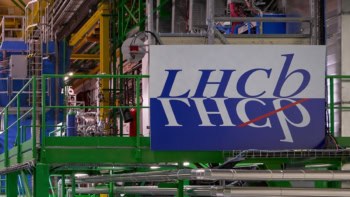The Japanese economy is facing its biggest crisis in decades, the United States is worried about recession, and the Euro has always been a weak currency. Stock markets around the world are losing value, and so-called high-tech stocks are falling faster than most. So why is Physics World saying that there has never been a better time for physicists to set up their own companies? See our special section.

Physics has dined out on the invention of the transistor, the laser and various medical scanners for years. However, the success of these inventions has depended on researchers leaving their labs – where the experiment only has to work once – to enter the world of industry where engineers are more interested in devices that work for the millionth time, rather the first, and where, ultimately, a customer has to buy the product. And that’s what the physicists featured in the special physics goes commercial section are doing.
Many of the spin-offs and start-ups described are in the photonics and optical-communications sectors. The ongoing explosive growth in the volume of Internet traffic is fuelling demand for communications hardware, and lots of it. Products that can fully exploit the entire bandwidth offered by optical fibres are needed urgently, and inventing devices that can generate, control, amplify and detect pulses of light is the sort of high-tech thing that physicists are good at.
Unfortunately, the terms Internet and high-tech are dirty words on the business pages right now. However, it should be clear to everyone that Internet companies such as Amazon and LastMinute, and high-tech companies such as Lucent and Ericsson are in fact very different, even if they have been bracketed together in what has been called the “tech-stock bloodbath”. The value of companies that sell products and services on the Web – books, holidays, insurance and so on – soared about a year ago, before crashing back down to earth. The stock-market values of the high-tech firms that make the “picks and shovels” for the Internet – such as the lasers, switches, fibres and routers – also rose and fell, but to a much lesser extent. While jobs losses are inevitable as the high-techs strive to match supply and demand, they remain fundamentally sound businesses – unlike many of the Internet companies.
Moreover, although economics goes in cycles, the global need for information and communications is only going to increase. Physicists with good ideas and commercial nous – or at least the common sense to recruit someone with commercial skills – will continue to go far.
Welcome to the Best of PhysicsWeb
Ever since Physics World launched its Web site, physicsweb.org, in late 1997, the number of visitors to the site has been growing impressively, as has the content. In addition to selected articles from Physics World and a dedicated news service, physicsweb.org has offered a wide range of other resources, including lists of conferences, job adverts and the best set of physics links on the Web. This month sees the launch of a new service called the “Best of PhysicsWeb” that will bring together content about five of the most exciting areas of modern physics – astrophysics; atomic and quantum physics; condensed matter; optics and lasers; and particle and nuclear physics – in a single place on PhysicsWeb.
Articles from Physics World magazine will be complemented by PhysicsWeb news stories and a set of essential links to other sites on the Web. The pages will be continually updated and new areas will be added to ensure that the Best of PhysicsWeb remains the best place to start when you want to find out more about the cutting edge of modern physics. Check it out at physicsweb.org/bestof/



